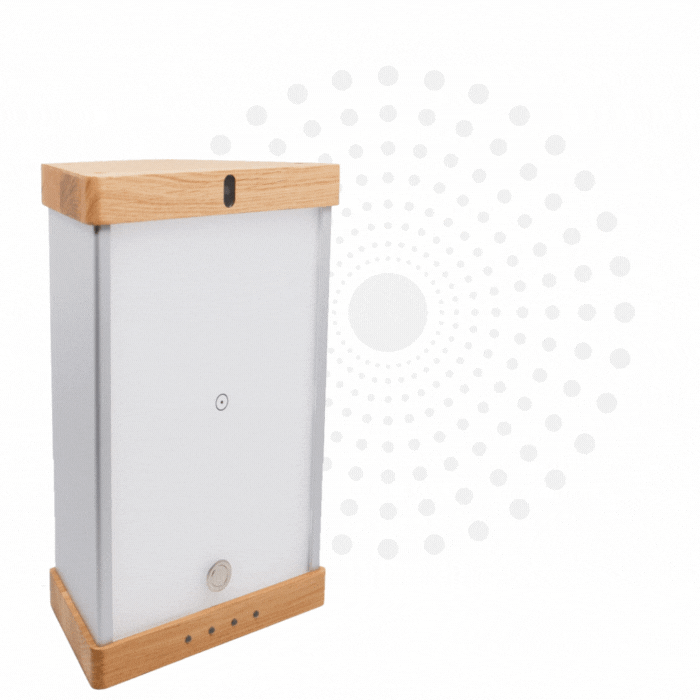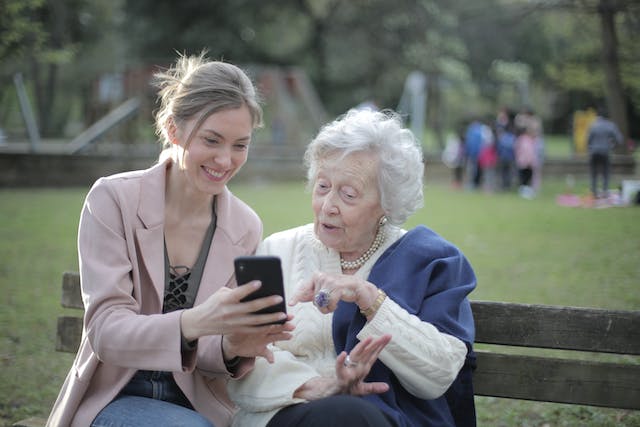Delve into the transformative power of speech therapy memory activities for adults in our new blog post. We explore enriching exercises that can enhance cognitive skills and stimulate mental acuity. You will discover some effective strategies that have empowered individuals to experience improvements in memory, thought articulation, and meaningful communication.
These therapeutic approaches address memory challenges and help with brain health. Join us as we journey through all that speech therapy has to offer for enhancing cognitive skills.

Christopher Ravn
Key Takeaways
1. There are many great speech therapy memory activities for adults, including word association, storytelling, word repetition, and pattern recognition.
2. Different types of activities target different kinds of cognitive issues, including short-term memory loss and aphasia.
3. There have been many impressive success stories and lots of compelling research that demonstrates the effectiveness of speech therapy for memory.
4. Combining speech therapy with complementary techniques, like light therapy and other innovative approaches, may enhance the outcomes even further.
Table of Contents
1. Exploring Speech Therapy Memory Activities for Adults: What You Need to Know
2. Addressing Memory Loss Through Speech Therapy: Is it Possible?
3. Types of Memory Activities Used in Speech Therapy and language pathology
4. How Can Speech Therapy Enhance Memory in Adults?
5. What Are Effective Short-Term Memory Activities in Speech Therapy?
6. What Are Effective Long-Term Memory Activities in Speech Therapy?
7. Frequently Asked Questions About Speech Therapy Memory Activities for Adults
The Best Speech Therapy Memory Activities for Adults
Memory does more than you might think for our day-to-day lives. It influences the ways we communicate and connect with others. Taking part in speech therapy memory activities can help strengthen cognitive skills and give adults a new approach to navigating memory challenges. Let’s explore some effective activities, like word association and memory journals, that are designed to stimulate memory.
- Word Association: This is a back-and-forth designed to connect emotions or personal experiences with words. For example, if the word given is ‘orange’, the participant might recall a specific memory related to oranges and strengthen neural connections.
- Memory Journals: In this, we encourage adults to jot down significant events or thoughts each day. This helps enhance memory recall and provides a tangible record of experiences.
- Storytelling: Here, you practice narrating personal stories from your memory. This strengthens those memories and also hones communications skills, making you better able to articulate thoughts well.
- Rhyme Recognition: A memory therapy activity in which adults are encouraged to identify rhyming words. This exercises memory and contributes to a stronger phonological awareness, which is essential for communicating effectively.
- Discussion Groups: By taking part in group discussions like book clubs, participants must recall and discuss specific details from a book. This fosters memory and social interactions, so it is a powerful memory exercise via speech therapy.
- Sequencing: Work with a partner to recall and order sequential events. This might mean detailing a morning routine or recounting steps in a recipe; however you do it, the participant is forced to practice recall and strengthen neurological connections.
Taking part in memory speech therapy activities for adults can address memory challenges and support a wider approach to brain health. Incorporate these activities into daily life to enhance memory skills and develop sharper cognitive abilities.
Best Speech Short-Term Memory Activities for Adults
When it comes to short-term memory activities via speech therapy, there are a few highly effective approaches for adults:
- Word Repetition: Hear a series of words and aim to recall them in the correct order to sharpen quick memory recall.
- Number sequences: Try to memorize number sequences, enhancing memory and other cognitive skills.
- Category Naming: Swiftly name items within a specific category to stimulate associative memory.
- Story Retelling: Listen to a short story, then attempt to retell it to enhance narrative recall.
- Listening Exercises: Take part in focused listening tasks, recalling details when prompted from spoken passages to improve auditory memory.
- Pattern Recognition: Identify patterns and attempt to replicate them, fostering spatial and visual memory skills.
- Object Memory: Briefly look at a set of objects, then attempt to recall them all to refine your visual memory.
These memory activities involving speech therapy for adults sharpen short-term memory and contribute to overall cognitive agility.
Exploring Speech Therapy Memory Activities for Adults: What You Need to Know
Short-term memory therapy activities play a pivotal role in adult speech therapy. They can be a gateway to cognitive rehabilitation and improving communication. Memory exercises stimulate the brain, helping to form new neural connections. This kind of active mental engagement is fundamental to recovering and refining cognitive functions, especially with regards to memory recall.
- Word association
- Storytelling
- Pattern recognition
Addressing Memory Loss Through Speech Therapy: Is it Possible?
Speech therapy memory activities can be a powerful component of addressing memory loss in some cases. The causes of memory loss vary, but can include:
- Aging
- Neurological conditions
- Traumatic brain injuries

Enhance your brain performance through the power of light.
Comfortable and easy to use 40Hz light therapy to support and improve your brain function.
View Our LightSuccess Rates and Limitations
The true rate of success for short-term memory exercises via speech therapy varies among adults. One key factor is the underlying cause of the memory loss. The approach may be helpful in improving memory recall and cognitive skills, but complete restoration may not be possible for everyone. Studies have shown that people with memory challenges who participate in speech therapy recover more of their cognitive abilities than people who don’t. In terms of realistic expectations regarding memory activities in speech therapy for adults, noticeable memory improvement is a real possibility. Individuals should find themselves able to navigate daily tasks with ease. Speech therapy is not a cure, but it is a valuable tool in mitigating the impact of memory loss. And you can combine it with other techniques, like green light therapy, for further improvements in cognitive wellbeing.
Types of Memory Activities Used in Speech Therapy and language pathology
Speech and language pathology memory activities employ diverse activities tailored to address short-term memory challenges and aphasia. Individuals experiencing memory concerns can see substantial improvements in their cognitive skills. For short-term memory, common techniques include:
- Word Repetition: Individuals will be asked to listen to a sequence of words then repeat them in order to sharpen immediate memory recall.
- Number sequencing: Similar to word repetition, this activity involves looking at or hearing a sequence of numbers then attempting to repeat it back verbally.
- Category Naming: Looking at groups of images linked by a category and attempting to name them all as quickly as possible.
For aphasia, activities are more centered around rebuilding language and communication skills: - Story Retelling: This is where you listen to a short story then attempt to recount it, improving narrative recall.
- Listening Exercises: Here, participants must recall details from spoken passages to enhance auditory memory.
- Pattern Recognition: Individuals must identify and replicate patterns to foster spatial memory skills.
Individual needs and goals are the main variable for choosing the right activity for short-term memory therapy activities via speech. Therapists will consider the individual’s ability to repeat and recall sequences and tailor the exercises to the patient’s cognitive abilities. Aphasia patients will be assessed for the severity of their language impairment, and the memory activities will be selected accordingly. For example, story retelling may be the best option for an individual who struggles with verbal expression. The approach from therapists is always centered around the patient. The strengths and challenges of the individual are assessed, including things like: - Cognitive abilities
- Communication goals
- Personal interests
In practice, therapists have seen individuals regain the ability to recall recent events or express thoughts coherently. An individualized approach to speech therapy memory activities for adults is effective, meaningful, and relevant to the patient’s unique journey.

How Can Speech Therapy Enhance Memory in Adults?
Speech therapy employs targeted exercises and a patient-centered therapeutic approach to enhance memory. Short-term memory exercises in speech therapy, like number sequencing or word repetition, sharpen immediate recall. Memory activities for adults with aphasia, like story retelling and listening exercises, improve memory and rebuild language skills.
The work of therapists is tailored to individual needs, determined at the therapist’s discretion. There have been countless success stories wherein individuals have regained the ability to recall recent events and express thoughts coherently. This highlights the effectiveness of speech therapy memory activities for adults.
Integrating Memory Strategies in Daily Life
To incorporate memory strategies into day-to-day life, you should implement them in your daily routines. Use visual aids like calendars to prompt yourself, and practice mindfulness every day. You could assign 30-60 minutes each day to partake in memory exercises like:
- Puzzles
- Memory games
- Speech therapy with a partner
It can be particularly beneficial to combine the memory activities of speech therapy for adults with other things, like light therapy, which may yield additional benefits for cognitive health. Applying memory techniques beyond therapy sessions helps reinforce neural connections. This is vital for sustained cognitive improvement.
What Are Effective Short-Term Memory Activities in Speech Therapy?
The short-term memory therapy activities that have consistently proven themselves to be the most effective are:
- Word repetition
- Number sequencing
- Category naming
We have described these activities in more detail earlier in this post. They are effective because they engage the brain in rapid recall, sharpening your immediate memory functions. Individuals are challenged to repeat sequences or swiftly name items belonging to a certain category, fostering stronger neural connections.
With regular practice of these speech therapy memory activities for adults, there may be significant improvements in short-term memory. This empowers individuals with valuable tools for getting by in daily tasks.
Adapting Activities for Individual Needs
Speech therapists are able to adapt short-term memory activities for adults to individual needs by considering:
- Cognitive abilities
- Communication goals
- Personal preferences
Regular feedback is crucial in ensuring the correct level of activities is presented. Therapists can modify their approach based on feedback from patients, cultivating a truly personalized approach aligned with the patient’s capabilities. This may also help foster engagement and motivation to persevere and see better results.
What Are Effective Long-Term Memory Activities in Speech Therapy?
- Memory Journals: These encourage individuals to document significant events each day to reinforce memory recall over time.
- Storytelling: This is where patients must recall and narrate personal stories to enhance memory and communication skills.
- Discussion Groups: Groups encourage participants to recall and discuss details to foster social interactions and long-term memory.
With consistent practice of these memory therapy activities, patients may experience sustained improvements in long-term memory. This empowers people to recall and share meaningful events with greater cognitive power.

Innovative Speech Therapy Techniques for Memory Enhancement
Innovative speech therapy memory activities take advantage of things like apps and virtual platforms to enrich speech therapy. There may be benefits to incorporating light therapy, like the functions of EVY LIGHT, as research has indicated great promise for this practice. Tech-focused speech therapy memory enhancement options include:
- Virtual Reality Memory Games
- Interactive Apps
- Neurofeedback Training
- Cognitive Training Software
Challenges may arise with a completely technology-oriented approach, as many advocate for the importance of human connection in speech therapy. But the most important thing is engagement. Individuals must actively participate in memory activities for adult speech therapy, whether they are tech-focused or not. This increases the chances of a successful outcome that improves memory and overall brain health.
View The Video Testimonials Of What Others Have Experienced
See how others have achieved a sharper mind by activating their gamma brainwaves in combination with maintaining a healthy lifestyle.
Frequently Asked Questions About Speech Therapy Memory Activities for Adults
What Are the Best Memory Activities for Adults in Speech Therapy?
The best activities include word repetition, category recognition, and number sequences. But there are many other highly effective techniques to explore in speech therapy.
Can Speech Therapy Significantly Improve Memory in Adults?
With the right approach and consistent engagement, adults can experience noticeable improvements in memory and speech from taking part in speech therapy memory activities.



















